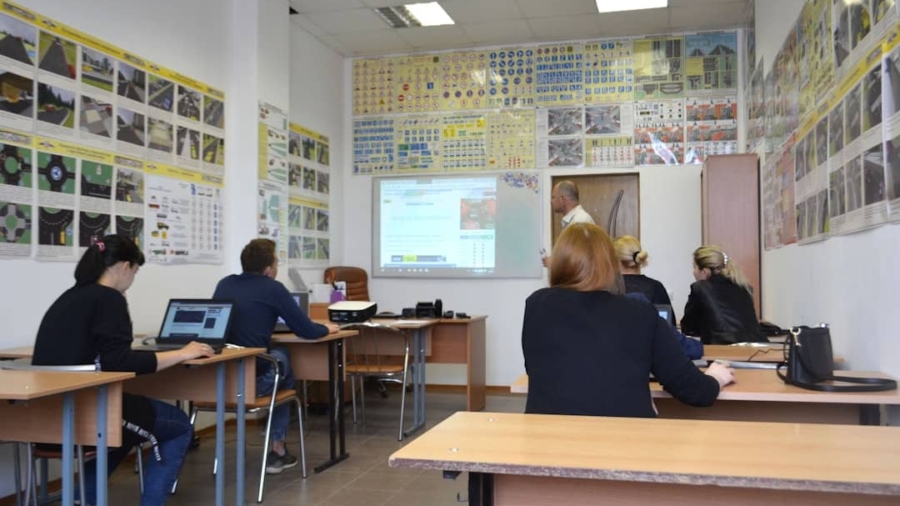In recent years, mobile gaming has emerged as a transformative force in the educational landscape. The proliferation of smartphones and tablets has made these devices ubiquitous, allowing students to access a wealth of information and learning tools at their fingertips. This shift has not only changed how students engage with educational content but has also opened new avenues for interactive learning experiences.
The rise of mobile gaming in education can be attributed to several factors, including the increasing availability of high-speed internet, the growing acceptance of gamification in learning, and the need for more engaging educational methods that resonate with today’s tech-savvy youth.
Developers are increasingly recognizing the potential of mobile platforms to deliver content in a way that is both enjoyable and effective.
As a result, educational institutions are beginning to integrate mobile gaming into their curricula, leveraging the interactive nature of games to foster critical thinking, problem-solving skills, and collaboration among students. This trend reflects a broader cultural shift towards recognizing the value of play in learning, as educators seek innovative ways to motivate students and make learning more relevant to their lives.
Key Takeaways
- Mobile gaming in education is on the rise, with more educators and students embracing the use of mobile games for learning.
- Using mobile games for education has numerous benefits, including increased engagement, personalized learning, and improved retention of information.
- Overcoming challenges in implementing educational games on mobile devices requires addressing issues such as access to devices, internet connectivity, and ensuring the games align with educational objectives.
- Successful examples of educational mobile games include “DragonBox” for math, “Duolingo” for language learning, and “Minecraft: Education Edition” for various subjects.
- Mobile gaming can engage students by providing interactive and immersive learning experiences, making education more enjoyable and effective.
The Benefits of Using Mobile Games for Education
The integration of mobile games into educational settings offers numerous benefits that can significantly enhance the learning experience. One of the most notable advantages is increased engagement. Traditional teaching methods often struggle to capture the attention of students who are accustomed to the fast-paced, interactive nature of video games.
Mobile games can provide an immersive experience that draws students in, making them more likely to participate actively in their learning process. This heightened engagement can lead to improved retention of information and a deeper understanding of complex concepts. Moreover, mobile games can facilitate personalized learning experiences.
Many educational games are designed to adapt to individual skill levels, allowing students to progress at their own pace. This adaptability is particularly beneficial in diverse classrooms where students may have varying levels of proficiency in a subject. For instance, a math game might offer different levels of difficulty based on a student’s performance, ensuring that each learner is appropriately challenged without feeling overwhelmed.
This personalized approach not only boosts confidence but also encourages a growth mindset, as students see tangible progress in their abilities.
Overcoming Challenges in Implementing Educational Games on Mobile Devices

Despite the promising potential of mobile gaming in education, several challenges must be addressed to ensure successful implementation. One significant hurdle is the disparity in access to technology among students. While many households have smartphones or tablets, others may lack reliable internet access or the latest devices capable of running advanced educational games.
This digital divide can exacerbate existing inequalities in education, making it essential for schools and policymakers to find ways to provide equitable access to technology for all students. Another challenge lies in the selection and integration of educational games into existing curricula. With thousands of apps available, educators may struggle to identify which games align with their learning objectives and standards.
Additionally, there is often a lack of training for teachers on how to effectively incorporate these tools into their teaching practices. Professional development programs that focus on integrating technology into pedagogy can help educators feel more confident in using mobile games as part of their instructional strategies. By providing teachers with the necessary resources and support, schools can create an environment where educational gaming flourishes.
Examples of Successful Educational Mobile Games
Several educational mobile games have gained recognition for their effectiveness in enhancing learning outcomes across various subjects. One notable example is “Kahoot!”, a game-based learning platform that allows teachers to create quizzes and interactive lessons that students can participate in using their mobile devices. Kahoot! fosters a competitive yet collaborative atmosphere, encouraging students to engage with the material actively while also promoting teamwork and communication skills. Another successful educational game is “Prodigy Math,” which combines role-playing elements with math challenges tailored to individual student needs. As players progress through the game, they encounter math problems that align with their curriculum, making learning relevant and enjoyable. Prodigy Math has been particularly effective in helping students develop a love for mathematics while reinforcing essential skills through practice and repetition.
The Role of Mobile Gaming in Engaging Students
Mobile gaming plays a crucial role in engaging students by tapping into their natural inclination for play and competition. The interactive nature of games allows learners to immerse themselves in scenarios that require critical thinking and decision-making skills. For instance, games that simulate real-world situations—such as managing a business or solving environmental issues—encourage students to apply theoretical knowledge in practical contexts.
This experiential learning approach not only makes education more enjoyable but also helps students develop essential life skills. Furthermore, mobile games often incorporate elements such as rewards, achievements, and leaderboards, which can motivate students to strive for excellence. These gamified features create a sense of accomplishment and encourage persistence, even when faced with challenges.
By fostering a positive attitude towards learning through game mechanics, educators can help students build resilience and a willingness to tackle difficult subjects without fear of failure.
How Mobile Gaming Can Cater to Different Learning Styles

One of the most compelling aspects of mobile gaming in education is its ability to cater to various learning styles. Visual learners benefit from colorful graphics and animations that illustrate concepts, while auditory learners can engage with sound effects and voiceovers that reinforce information. Kinesthetic learners thrive on interactive gameplay that requires physical movement or manipulation of objects within the game environment.
By offering diverse modes of engagement, educational mobile games can reach a broader audience and accommodate individual preferences. Additionally, many educational games incorporate storytelling elements that appeal to learners who connect with narrative-driven content. For example, games that present historical events through immersive storytelling can help students better understand context and significance while making the material more relatable.
By addressing different learning styles through varied gameplay mechanics and content delivery methods, mobile gaming can create inclusive educational experiences that resonate with all students.
The Future of Educational Game Adoption in Mobile Gaming
As technology continues to evolve, the future of educational game adoption in mobile gaming looks promising. Advances in artificial intelligence (AI) and machine learning are paving the way for even more personalized learning experiences. Future educational games may be able to analyze student performance data in real-time, adjusting difficulty levels and content based on individual progress and learning patterns.
This level of customization could further enhance engagement and effectiveness, making learning more tailored than ever before. Moreover, as educators increasingly recognize the value of gamification in fostering motivation and engagement, we can expect a surge in collaboration between game developers and educational institutions. This partnership could lead to the creation of high-quality educational games that align closely with curriculum standards while also being fun and engaging for students.
As mobile gaming becomes more integrated into formal education systems, it will likely play an essential role in shaping the future of teaching and learning.
Tips for Choosing and Using Educational Mobile Games
When selecting educational mobile games for classroom use or personal learning, several factors should be considered to ensure effectiveness and alignment with educational goals. First, it is crucial to evaluate whether the game aligns with specific learning objectives or curriculum standards. Educators should look for games that reinforce key concepts or skills relevant to their subject matter.
Additionally, user reviews and ratings can provide valuable insights into a game’s effectiveness and engagement level. Seeking recommendations from fellow educators or exploring curated lists from reputable educational organizations can help identify high-quality options. Once suitable games are chosen, it is essential to integrate them thoughtfully into lesson plans rather than using them as standalone activities.
In conclusion, as mobile gaming continues to rise within educational contexts, it presents an exciting opportunity for innovation in teaching and learning methodologies. By embracing this trend thoughtfully and strategically, educators can harness the power of mobile games to create dynamic, engaging, and effective learning environments for all students.
A related article to “How Mobile Gaming Is Expanding Educational Game Adoption” is “Unlock Your Potential with the Samsung Galaxy Book2 Pro.” This article discusses the features and benefits of the Samsung Galaxy Book2 Pro, a powerful device that can enhance productivity and creativity. With its sleek design and advanced technology, the Samsung Galaxy Book2 Pro is a great tool for students and educators alike. To learn more about this innovative device, check out the article here.
FAQs
What is mobile gaming?
Mobile gaming refers to playing video games on mobile devices such as smartphones and tablets. These games can be downloaded and played on the go, making them easily accessible to a wide audience.
What are educational games?
Educational games are designed to teach specific skills or knowledge to the players. These games can cover a wide range of subjects, from math and science to language learning and history.
How is mobile gaming expanding educational game adoption?
Mobile gaming is expanding educational game adoption by making educational games more accessible to a larger audience. With the widespread use of smartphones and tablets, educational games can reach more people, including students, parents, and educators.
What are the benefits of using mobile gaming for educational purposes?
Using mobile gaming for educational purposes can make learning more engaging and interactive for students. It can also provide a more personalized learning experience and allow for easy access to educational content anytime, anywhere.
What are some examples of educational games available on mobile devices?
There are many educational games available on mobile devices, covering a wide range of subjects. Some examples include math puzzle games, language learning apps, science simulations, and history trivia games.
How can educators and parents support the use of educational games on mobile devices?
Educators and parents can support the use of educational games on mobile devices by researching and selecting high-quality educational games, integrating them into lesson plans or learning activities, and monitoring the usage to ensure that the games are being used effectively for educational purposes.

